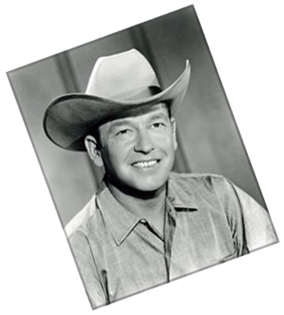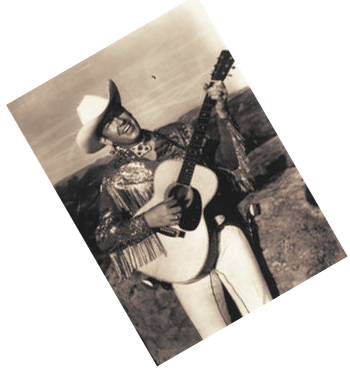



WILLCOX Cowboy Hall of Fame inductees
RAY WIEN (12)
1913-1992
1983 COWBOY HALL OF FAME CHARTER MEMBER
The following biography was written at the time of Mr. Wien's induction.Ray Wien has been in one place for a long time - all his life. Born at the Mascot Mine on August 5,1913, Wien is living just 5 miles from his birthplace. "I've been around there for a pretty good spell," he said.
Born to Mort and Ada Wien, Wien grew up in the Dos Cabezas area. He attended local schools and graduated from Willcox Union High School in 1933. He remembers sometimes riding a horse or burro several miles to where he could catch a bus into town for school. Finally, he and some friends got an old car together and drove back and forth.
He doesn't see much difference in the way kids were in his day from the way they are today. "Back then kids didn't have access to dope or liquor. Now they have more money and most of them have wheels to get them around. They aren't any meaner now than we were then.
Ray's father, Mortimer Wien, worked at the Mascot Mine, but homesteaded the home ranch about 1915. Ray remembers his father as "a miner and a cowboy, too. Back then, you know a fellow could make more money working around a mine than he could out punchin' cows for wages."
As a boy of about ten, Ray began to get involved in ranching. Some of his early experiences were gained at another operation. "My grandmother had a ranch, a little place, about three miles north of here, and I used to go over there and stay with her during the summer."
Wien remembers some hard times during these early years, beginning with the depression of 1929. As Ray describes the effect of the depression on ranchers, "Well, it made us sit back and take notice and try to cut every corner we could. There for a while you couldn't hardly sell a grown cow. I can remember back when you couldn't sell grown bulls. I can remember back when the Department of Agriculture would come in and buy cows from these ranches and then just take 'em out and shoot 'em. In other words, they was trying to cut down on the surplus. I saw good cows sell for around seven, seven-and-a-half dollar a head. Then they'd just take 'em out and shoot "em."
Even farther back, as a small boy, Ray remembers a drought about the time of World War I. He tells how they helped feed the cattle; we used to burn the stickers off of these old prickly pear cactus and let the cows eat the prickly pear leaves. A lot of ranchers did that around here. Burn the stickers off to where they could handle them. Then even cut these old yuccas, these old Soap weeds. Some of the ranchers around the country would get hold of a shredder and then chop 'em down and haul 'em in where they had that grinder and grind 'em up and let the cows eat the yucca." Ray explains that the process consisted of burning the outside shell off the yucca, then taking the core of the plant to be shredded and fed to the cattle.
He goes on to reminisce about the open range: "When I was smaller, these Dos Cabezas Mountains up here were open. Anybody could run cattle in there that wanted to, and there used to be lots of horses up in these hills and lots of burros, as well as cattle. That is a thing of the past."
How does Ray think people have changed over the years? "Well, I believe, back when I was smaller people were more self-sufficient. They wanted to paddle their own boat. Now, it seems like there's too much of this welfare stuff going on and too much government control."
In addition to many years spent operating his ranch, Ray has worked in the mining industry a little. He worked for a while in 1934 and 1935 for Consolidated Gold Company, which operated a mine in the Dos Cabezas Mountains. His reaction to the idea of working in the mines: "I worked some underground, but not very much. I didn't like it."
Wien liked the ranch life and has stayed with it all these years. "All I could ever see was an old cow. Ever since I was real small that's all I ever wanted to do. I stuck with it cause I liked it and I never could have lived in town," he said.
He got his brand, the M4, in 1929. The brand was one his grandfather had used when he came to Arizona from New Mexico. He ranched with his dad up until that time and would still go to help him after he went out on his own. He still has anywhere from 75 to 150 head and works his ranch every day.
He married his wife, Marie, a Cochise County native, born in the Kansas Settlement, in 1938. A good wife, according to Wien, is better than half the battle. His wife, Marie, is a hard worker and Wien says she has been his right arm.
Wien and his wife have three children, two daughters, Edna and Carol, and a son Walter. Their son was born in Dos Cabezas, and both daughters were born in the flats.
Wien said he learned a lot from his father, growing up with him and watching him in daily work. "My dad always instilled it in us to pay our bills and stick with our work." he said. "Always treat your neighbor the way you want to be treated yourself and you won't have any problems. I've seen a lot to support that, too. I've seen trades made with just a verbal agreement and both men always stuck with their word. We need more to that today. And I think half of the problem today is those computers."
Wien said that one of his biggest gripes is people making remarks about an old stupid cowpuncher. "I don't care what they say," he said, "but you take a good cowboy, that's highly-skilled labor and it's something you don't learn out of a book. It just comes with time and hard work. It comes from within." Wien likes ranch life, the way it was yesterday and the way it is today. Is there anything he would change? "No, I don't believe I would. Of course, they always say if your foresight was as good as your hindsight, you'd be a whole lot better off, but I don't know of anything I'd want to change. We have too much government control. Otherwise, I'd just live my life the same and be happy with it," he said.
Wien has been active in the Willcox area. He's in town on a regular basis and belongs to the Willcox Elks Lodge and the Arizona Cattle Growers Association. "I guess I'm still going just as strong as an old man can go." He said. Describing himself as an "old native and a jack of all trades," Wien still works his ranch every day. And he sees no end to it. "It's a good way to live," he said. 'Working on a ranch helps you learn to think for yourself. Why, we never spent our time worrying about being paid overtime or about our fringe benefits. We were too busy working to worry about things like that. I guess I just can't think of a better way to live."
Ray died in a ranching accident in October 1992.





